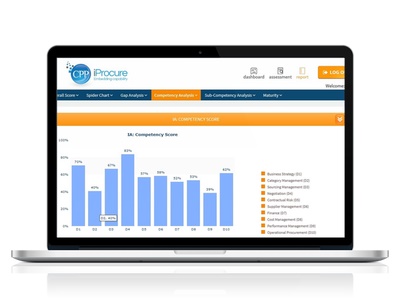Procurement needs a strong mandate not super developed soft skills
Not a week goes by without a talent shortage headline resulting in a great deal of noise regarding the profile of the modern procurement skill set. Here we make the case for CPO’s to focus on securing a strong mandate.
The focus on soft skills
A common criticism is a lack of soft skills. But are procurement professionals so poor at soft skills, i.e., worse (on average) than any other function? After all, we all know of individuals in other functions such as Finance, Operations, IT, even HR, who have less than stellar soft skills.
The modern procurement professional is expected to have the drive and innovation of an entrepreneur, the charisma of sales, the process rigor of a consultant and the analytical skills of finance. Such skills are rarely all found in one person. So why do we insist on such a broad range of skills in procurement professionals?
One reason could be the cross-functional nature of modern-procurement, but the same could be said about any other function. So why do professionals from other functions get away with focusing on core skills. While procurement professional must excel in a broad skills portfolio?
Political Reality
From my many years in the profession, I conclude that the procurement mandate is critical. For those (read majority) without a top-level mandate. The CPO’s ability to prove procurement’s strategic value depends in part upon the degree of successful integration achieved with other stakeholders. Unfortunately, other functions will only integrate when they are mandated to do so.
The real world political reality of corporate behavior dictates that it is so.
A Strong Mandate must become the CPO’s priority
We regularly hear procurement professionals talking of hostile stakeholders, having to ‘walk on eggshells’ or we have to become ‘trusted advisors.’ You would never hear this from sales or finance, and nobody would dream of challenging their right to do the job they were hired to do. Many procurement professionals, however, have to do just that. Not a good business model on which to attract the brightest graduates into the profession or attract the most talented professionals available to your organization.
Procurement professionals in organizations without clear support, get frustrated and experience higher stress levels than those who have a strong mandate to support them. Consequently, they leave for more productive pastures where they can get higher quality experience. The outcome for those organizations who don’t support their procurement function is lost opportunities, higher cost, and increased staff turnover.
Perhaps instead of trying to recruit supermen and women, who can make change happen without power, and by sheer charisma and influence alone. We should acutely focus on securing the right mandate for procurement. Such a goal does not seem to be atop of the CPO’s Agenda. We need more Brave CPO’s.
The role of trusted adviser is a road to the second division
According to a survey carried out by The Hackett Group, which found close to three-quarters of people employed in the profession see achieving the role of a trusted advisor as a key core objective. We believe this is a road to failure. While such a strategy sounds smart, in theory, in practice it’s dumb because no customer wants an “adviser” or a “consultant.” They want somebody who will take responsibility for the supply chain, not someone who shouts sage advice from the sidelines. At best, such a strategy will achieve a position at the top of the 2nd division.
To play a strategic role procurement must take responsibility for the firms expenditure. In other words, rather than a consultant or an adviser, procurement must lead. That’s an important distinction. The ultimate source of procurement’s credibility is never the ability to provide sage advice, but its ability to deliver; margin improvement, growth, and free cashflow.
MyPurchasingCenter reports Hackett goes on to say procurement’s long-standing efforts at strengthening core capabilities like sourcing and category management “are beginning to pay off”. However, more must be done in managing and interpreting data, and talent management, namely:
- Training and development;
- Job profiles and competencies; and
- “career pathing” and progression.
Hard talent data must become a priority
Attracting, developing and retaining talent needs to become a more fact-based science rather than instinct and subjectivity. Big data is the elephant in the room. Most organizations have scant insight based upon hard data, of the knowledge and capabilities of their teams. iProcure Bench solves this problem.
Soft skills and the ability to influence are always important in any functions growth plans. We should not, however, forget the hard skills of strategy, category management, strategic sourcing and SRM among others. These are the skills used to convert business strategy into category strategy and to deliver it into the business. Securing the mandate to do so is critical, and the soft skills icing on the cake. Without the correct mandate, procurement is left with responsibility without power, and the need to walk on eggshells to get things done.
This is Procurement’s Kryptonite.
Nuff said.
You can learn more about iProcure Bench here





